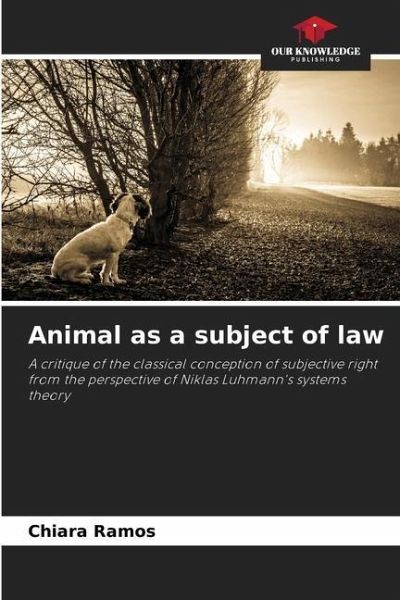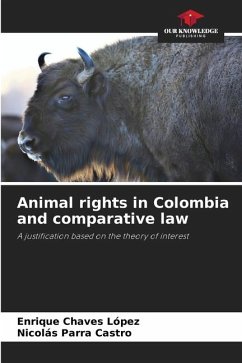
Animal as a subject of law
A critique of the classical conception of subjective right from the perspective of Niklas Luhmann's systems theory
Versandkostenfrei!
Versandfertig in 6-10 Tagen
36,99 €
inkl. MwSt.

PAYBACK Punkte
18 °P sammeln!
Based on the anthropocentric assumptions of the classical notions of subjective law, theoretical discussions about animal rights are also developed, sometimes framing them as true subjects of law, sometimes placing them as object of the legal relationship, but always starting from essentialist and/or ontological premises, which produce paradoxes and paralyze science. I understand that attempts to frame animal law in the classic and dichotomous distinction "subject versus object" runs into some practical and theoretical problems, which I intended to address in my master's research, proposing as...
Based on the anthropocentric assumptions of the classical notions of subjective law, theoretical discussions about animal rights are also developed, sometimes framing them as true subjects of law, sometimes placing them as object of the legal relationship, but always starting from essentialist and/or ontological premises, which produce paradoxes and paralyze science. I understand that attempts to frame animal law in the classic and dichotomous distinction "subject versus object" runs into some practical and theoretical problems, which I intended to address in my master's research, proposing as "comfortable" contribution to this discussion the theory of Luhmann's autopoietic communicative systems, which allows the replacement of the subject of law as an entity, as a concrete person, by the idea of communication.












